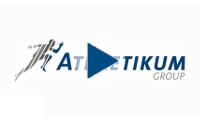Shoulder
Shoulder prosthesis -
Dr. Michael Lehmann
A modern shoulder prosthesis now offers surgeons the ability to replace badly damaged articular surfaces effectively. Many sufferers can, with this treatment, move their arms well again and lead an approximately normal life.
Please note: shoulder prostheses should only be implanted in approved shoulder centres, since excellent surgical skills are required for good treatment outcomes and there has been a tremendous amount of research in this field over recent years. We have had excellent experiences with minimally invasive shoulder prostheses for the last 20 years.
Why a shoulder prosthesis?
Instead of conventional shoulder prostheses, surface replacements can be carried out. With this relatively new procedure, instead of removing the entire humeral head, which is what happens with a conventional full prosthesis, the humeral head is merely covered with a protective special cap made from titanium. Combined with a cement-free or cemented joint socket, this produces an almost exact copy of the natural joint anatomy, offering patients maximum mobility. Many patients have even been able to go on to play golf without problems after having this procedure.
When is an artificial shoulder joint more appropriate?
Artificial shoulder joints can represent a valuable treatment option in the following cases: painful and very advanced wear of the shoulder joint (osteoarthritis), humeral head necrosis, rheumatic joint changes such as rheumatoid arthritis or fracture of the humeral head.
How long will a patient be in hospital after a shoulder prosthesis implant?
The primary hospital stay, in which the artificial shoulder joint is implanted, can be restricted to just a few days. Ideally, the patient will undergo inpatient rehabilitation lasting three to four weeks at an approved centre specialising in shoulder injuries. The aftercare is carried out on an early functional basis without much resting of the joint. Even on the first day after the operation, the first physiotherapy exercises can begin. And after just two weeks, specialist joint mobility training performed in water is recommended.





